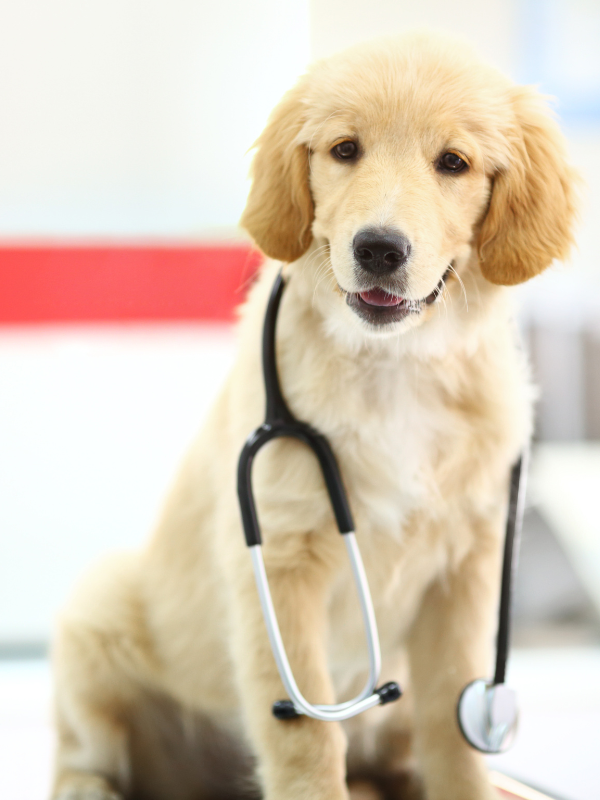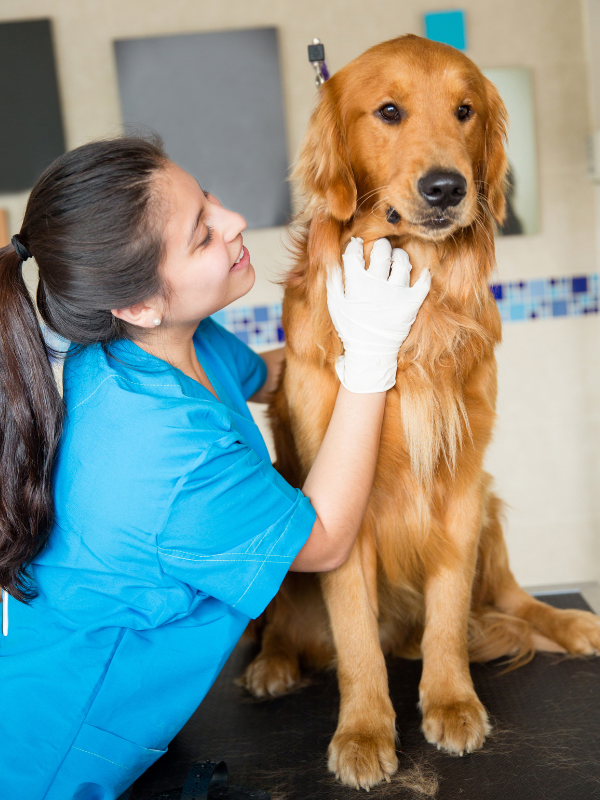737-215-3211

Ultimate Guide to Stress-Free Vet Visits: Preparing Your Puppy with Proven Tips
Understanding the Importance of Regular Vet Visits
Regular vet visits are a critical part of ensuring your puppy's health and wellness. They provide an opportunity for your vet to monitor your puppy's growth, administer necessary vaccinations, and catch potential health issues early.
Why Puppies May Feel Stressed at the Vet
However, vet visits can be stressful for your puppy. The unfamiliar environment, strange smells, and presence of other animals can all contribute to anxiety and fear. Understanding this can help you take steps to reduce your puppy's stress levels during these necessary appointments.
The Role of Puppy Socialization
Socialization plays a crucial role in preparing your puppy for the vet.
Introducing Your Puppy to New People and Environments
Early introduction to a variety of people, animals, and environments can help your puppy feel more comfortable when encountering these in the vet's office. This includes meeting other animals, getting used to being handled, and experiencing different noises and smells.
Benefits of Puppy Socialization for Vet Visits
A well-socialized puppy is more likely to be calm and confident at the vet. This not only makes the visit easier for both of you but also ensures the vet can do their job effectively.
Practical Tips for Reducing Puppy Stress at the Vet
Before the Visit
Familiarizing Your Puppy with Car Rides
Getting your puppy used to car rides can make the journey to the vet less stressful. Start with short trips and gradually increase the length as your puppy becomes more comfortable.
Packing the Essentials
Pack a bag with your puppy's favorite toys, a familiar blanket, and some treats. These can provide comfort and distraction during the visit.
During the Visit
Comforting Your Puppy
Speak in a calm, reassuring voice and provide plenty of cuddles. Your presence and comfort can significantly reduce your puppy's anxiety.
Rewarding Good Behavior
Praise and reward your puppy for calm behavior. This reinforces the positive experiences at the vet, which can make future visits easier.
After the Visit
Providing a Calm Environment at Home
Once home, provide a quiet space for your puppy to rest and recover. This can help them unwind and de-stress after the visit.
Continuing Positive Reinforcement
Continue to reward your puppy's good behavior after the visit, reinforcing the positive experience.
Preparation and patience are key when acclimating your puppy to vet visits. Through proper socialization, familiarization, and lots of positive reinforcement, you can reduce your puppy's stress and make vet visits a more pleasant experience for both of you. Remember, every puppy is unique, and it's essential to go at your own puppy's pace. With time, you'll find that vet visits become a seamless part of your puppy's routine.
FAQs
How early should I start socializing my puppy?
Puppies can begin their socialization journey as early as 8 weeks old, and this should continue until they're about 16 weeks old. This is a critical period for their development, and positive experiences during this time can significantly impact their future behavior.
What should I bring to the vet visit?
Apart from your puppy's medical records, consider bringing their favorite toys, a blanket that smells like home, and some treats. These can provide comfort and distraction during the visit.
My puppy seems extremely anxious at the vet. What should I do?
Consult with your vet or a professional dog trainer. They can provide specific strategies or recommend calming aids to help manage your puppy's anxiety.
Can I stay with my puppy during the vet visit?
Generally, yes. Your presence can be comforting for your puppy. However, due to certain procedures or clinic policies, there may be times when this isn't possible.
How often should my puppy visit the vet?
Puppies typically have a series of vet visits for vaccinations and check-ups in their first year. After that, an annual wellness exam is usually recommended, but your vet can provide the best advice based on your puppy's health and needs.




Leave a comment